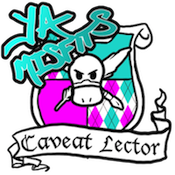Hi sweet readers! I thought I'd do a series of posts detailing my experiences taking Publishing 101 via publication of my debut novel.
My goal is to publish a book that is indistinguishable to my readers from any novel from a Big Five publisher. It can be done - in fact, finding such a novel is the one thing that finally got me off my butt and pushed me to self-publish ONE.
Just as a traditionally published book has a huge team of professionals behind it, ONE does as well. My plan is to blog about every step of the process from agent-approved manuscript to published book.
Okay, guys. It's time to talk about the ever-elusive PLATFORM. First, a definition.
Your platform = you + your book + your online presence.
You might have thought that you + your book = your platform.
But if all you have is you + your book, then what you have is a sales pitch, not a platform.
Online presence is so important because it's what tells people who you are, what your personality is like, how professional you are, and how hard you work. It's important because people assume that your book is a reflection of you. (Because, honestly, it is.)
For this reason, you need to make decisions about how you present yourself on social media, especially. For example, here's what I tweet and post on Facebook about 90% of the time - a summary of my online presence.
- Stuff about my writing and publishing process
- Anecdotes from raising my four punk children
- YA Literature
- Writing advice and encouragement of others
- Assorted vanity tweets - my hair is pretty, my husband is funny, my book is awesome, and I liked this totally random article.
Now, perhaps more importantly, here's what I do not tweet or post on Facebook about, 90% of the time:
- What frustrates me about publishing
- Discouragement and complaints
- Picking on particular people or books
- Volatile issues
- Telling people to buy my book.
This is a sketch of my online presence, which, in addition to me and my book, makes up my platform. I'm not saying that these are the right or wrong ways to do things. (Some people have tons of followers just from being mean and snarky all day long - more power to them, if they can pull it off, I guess.)
I want to say one very, very important thing here. Lots of people have told me that promo for ONE is going relatively well because "I have a good platform."
While that's true, that's not the whole picture.
In truth, "I worked long and hard at building a good platform." I've been building relationships with readers and writers (and, now, my friends!) for the past year and a half. I've been genuine and honest and poured a lot of time into it. A good platform is earned, not bestowed by the Twitter gods to a random few.
Lastly, before you dive into platform building, there are a few things you need to check at the door:
1. Any attitudes you have about your target audience
People know when you're being genuine, and when you're pandering. If you think your target audience (12 to 18 year olds, if you're writing YA) is: silly, petty, immature, dumb, volatile, or incapable of understanding and perspective? First, why are you writing for them? And second, change that attitude, because it will come off in your interactions with them and they will not buy your book. They just won't.
2. The idea that you are special.
Look. There are thousands and thousands of books out there. Readers have plenty of books from which to choose.
Is your story's concept awesome? So are a ton of others.
Do you write gorgeous prose? So do I. And all my friends.
Is your cover stunning? Guess what - anyone else can hire the same designer.
Seriously, now. The minute you understand that your book is just as great and worthy and readable as hundreds of other books out there, no more, and in some cases, less, is the minute you attain the humility that you will need to succeed in this business. The best place to put it on display is in your online presence.
And, even though this should go without saying, I'll say it anyway. Say thank you. To everyone. Lots of times. It doesn't cost anything and it goes a long way.
3. The expectation that this will be quick and easy.
Gaining quality followers, friends, and readers takes a very long time. It's time and energy well spent, but relationships don't spring forth from gimmicks or giveaways. Real, quality relationships, the ones that make up your platform, come out of genuine human interaction. It takes awhile. It's totally worth it.







Agreed. Nothing makes me click Unfollow faster than a writer who spams the shit out of their feed. There's a thin line between self-promotion and spamming. But if you've cultivated relationships, your cp's and betas and friends will promote you as well. <3
ReplyDelete"quality followers" is a fair assessment of us :) I'm pretty sure I fail at social media, but hey, that's a fair representation of me (since I fail at social everything). I definitely think the key to having an online presence is being yourself, being genuine as you mentioned. WHICH IS WHY I LIKE YOU SO MUCH <3
ReplyDeleteI agree. Being yourself is key to your platform. I really love this series, Leigh Ann, and seeing your book go from Word document to physical book...
ReplyDeleteAwesome post. Truly. I loved the part where you said that your book is not the only best book out there; one needs to learn humility. I think that's a big deal.
ReplyDeleteThanks for the info Leigh Ann! It's always nice to know that my self publishing peers are also grinding their way forward step by step, day by day. It's easy to think that someone who has already built a social platform did it over night. Your post reminds me that it can be a lot of work getting there, but you still get there. Thank you. :-)
ReplyDelete